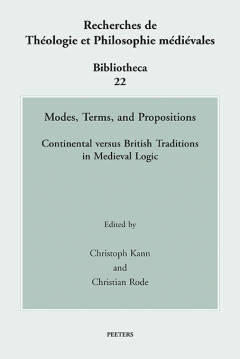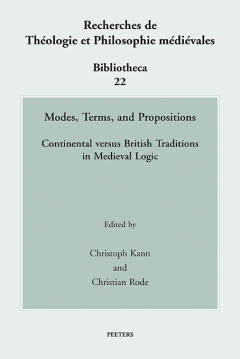
- Afhalen na 1 uur in een winkel met voorraad
- Gratis thuislevering in België vanaf € 30
- Ruim aanbod met 7 miljoen producten
- Afhalen na 1 uur in een winkel met voorraad
- Gratis thuislevering in België vanaf € 30
- Ruim aanbod met 7 miljoen producten
Zoeken
Omschrijving
This volume is devoted to the topic of the Oxford-Paris split, which has been discussed in the history of medieval logic since the 1980s, and attempts to reassess this dichotomy in the light of recent research findings. Originally, it was assumed that Oxford primarily developed the terminist approach that focuses on propositions and their parts, while Paris developed the modist logic within the tradition of speculative grammar. Recent research shows, however, that the actual situation was far more complex. The contributions in this volume replace the Oxford-Paris dichotomy by a widened perspective on a number of British and continental logical developments, and examine various facets of their interrelationship, including the role of syncategorematic words, the signification of vocal sounds and of letters, the theory of concrete accidental terms, and sophismatic peculiarities.
Specificaties
Betrokkenen
- Auteur(s):
- Uitgeverij:
Inhoud
- Aantal bladzijden:
- 316
- Taal:
- Engels
- Reeks:
- Reeksnummer:
- nr. 22
Eigenschappen
- Productcode (EAN):
- 9789042951129
- Verschijningsdatum:
- 24/10/2024
- Uitvoering:
- Paperback
- Formaat:
- Trade paperback (VS)
- Afmetingen:
- 160 mm x 240 mm
- Gewicht:
- 1333 g

Alleen bij Standaard Boekhandel
+ 420 punten op je klantenkaart van Standaard Boekhandel
Beoordelingen
We publiceren alleen reviews die voldoen aan de voorwaarden voor reviews. Bekijk onze voorwaarden voor reviews.











